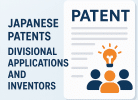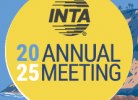On October 24, 2022, the Supreme Court of Japan issued its decision to dismiss the appeal against the IP High Court’s March 2021 ruling regarding the Japanese Society for Rights of Authors, Composers and Publishers (JASRAC)’s trying to force music schools to pay for copyrighted music played by teachers and that played by students.
What Was the Issue?
The core issue revolved around the Copyright Act’s Article 22 description of playing for a “public audience.” Is teacher’s playing for students and vice versa public performance? If so, above and beyond the copyright royalties that music schools pay for sheet music, are those schools liable to pay royalties or a fee for (1) teachers’ demonstrating (“performing”) for their students and (2) students’ playing (“performing”) for their teachers or at recitals?
Finally, the Supreme Court has affirmed the IP High Court’s 2021 split result with responses in July and October of this year. One pays, one plays free.
Timeline
– September 2017: JASRAC and music schools’ alliance begin hearings in Tokyo District Court.
– March 2020: Tokyo District Court decides against the music schools, leading to appeal in the IP High Court.
– March 2021: IP High Court decides (1) against schools regarding music played by teachers but (2) against JASRAC regarding music played by students; each appeals to the Supreme Court of Japan.
– July 28, 2022: Supreme Court refuses to receive the music school’s appeal against the IP High Court decision, implying the schools should pay for the teachers’ performances.[1]
– October 24, 2022: Supreme Court dismisses JASRAC’s appeal against the IP High Court decision, implying that the schools should not be forced to pay for the students’ performances.[1]
Now JASRAC and music schools have a settled basis from which to negotiate a payment plan, probably less than the 2.5% of music teachers’ income from instruction that JASRAC had been demanding.[2]
In conclusion, music played by a person for another in education, with payment, can be treated as copyrighted in Japan. Foreign businesses (not only music teachers, but stores playing BGM, as well!) should be aware of these restrictions and possible costs, and plan accordingly.
* The information provided on this website is for informational purposes only and is not intended as legal advice.
** For questions or consultation, please contact us for more information.
Contact: Taro Yaguchi
Sources
[1] JASRAC. “音楽教室における請求権不存在確認訴訟の最高裁の判断について [The supreme court’s decision on litigation to verify lack of right to charge music schools].” https://www.jasrac.or.jp/release/22/10_2.html A press release. October 24, 2022. Accessed October 29, 2022.
[2] Sankei Shimbun. “「音楽教室」訴訟 次代を育む妥当な判断だ [Music school litigation: an appropriate decision to train the next generation].” https://www.sankei.com/article/20221028-FPQFP5TC6RLWFITXOSVYIA3PMU/ October 28, 2022. Accessed October 29, 2022.
Image by StockSnap from Pixabay






